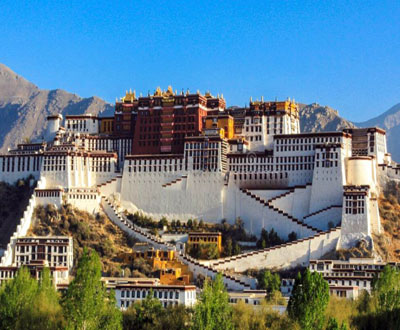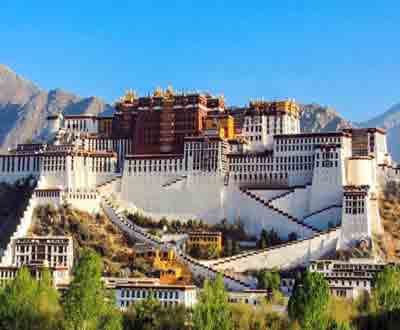- info@mountadventureholidays.com
- +977 - 9843746611
Tibet is a region located in the Himalayas, bordered by China, Nepal, Bhutan, and India. It is known for its stunning landscapes, rich cultural heritage, and spiritual significance. If you're planning a tour to Tibet, there are a few key things you should know:
Entry Permits: Foreign travelers are required to obtain a Tibet Travel Permit (TTP) to enter Tibet. This permit is issued by the Tibet Tourism Bureau and can only be obtained through a registered tour operator in Tibet. It is essential to arrange your tour through a reputable travel agency that will assist you in obtaining the necessary permits.
Access to Tibet: There are several ways to access Tibet. The most popular option is by air, with direct flights available from major Chinese cities like Beijing, Shanghai, Chengdu, and Kathmandu (Nepal). Alternatively, you can enter Tibet overland from mainland China or Nepal, but additional permits may be required.
Best Time to Visit: The best time to visit Tibet is during the months of May to October when the weather is relatively mild and the landscape is vibrant. However, keep in mind that Tibet experiences significant temperature variations, and nights can be cold even during the summer months.
Highlights and Attractions: Tibet offers a range of breathtaking attractions. Some popular destinations include Lhasa, the capital city, which is home to iconic landmarks like the Potala Palace and Jokhang Temple. Other notable places include Namtso Lake, Yamdrok Lake, Mount Everest Base Camp, Mount Kailash, and the Tashilhunpo Monastery.
Altitude Considerations: Tibet has a high average elevation, with Lhasa situated at around 3,650 meters (11,975 feet) above sea level. Travelers should be prepared for the effects of high altitude, such as altitude sickness. It's advisable to acclimatize slowly and stay hydrated. Consult with your doctor before traveling, especially if you have any pre-existing health conditions.
Cultural Sensitivity: Tibet is a deeply spiritual and culturally significant place for Tibetan Buddhists. It is essential to respect local customs, traditions, and religious sites. Dress modestly when visiting temples or monasteries, and be mindful of local sensitivities.
Infrastructure and Accommodation: While major cities like Lhasa have well-developed infrastructure and a range of accommodation options, more remote areas might have limited facilities. It's best to plan your itinerary in advance and book accommodations and transportation accordingly.
Travel Restrictions: The Chinese government occasionally imposes travel restrictions in Tibet, particularly during sensitive political periods or religious festivals. It's important to stay informed about any travel advisories or restrictions before planning your trip.


© Copyright 2025 Mount Adventure Holidays ,All rights reserved. | Developed by : Web Design In Nepal